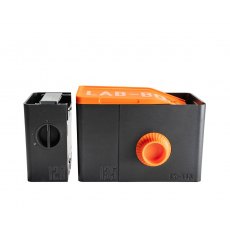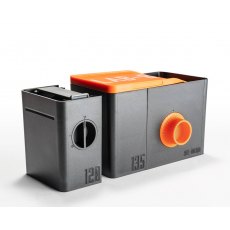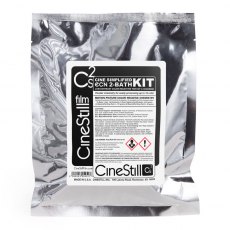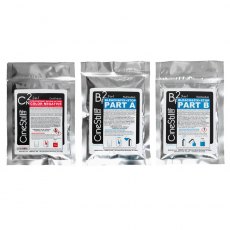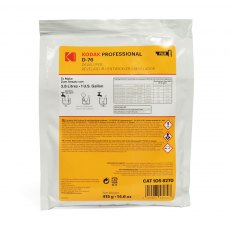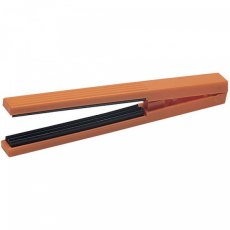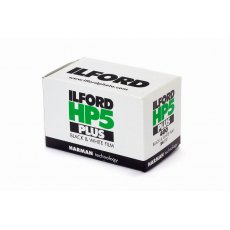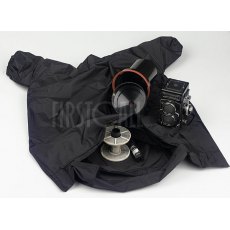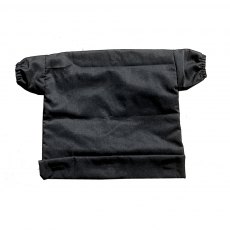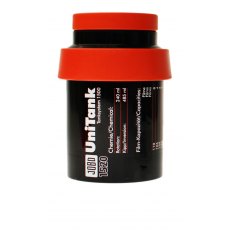Product Description
Developing black and white film is so simple with the CineStill Df96 Monobath. The angst of too much development, dilution, time or agitation are a thing of the past. Even Stop bath, Fixer or Hardener can all be dispensed with if you use Df96, making for totally foolproof at-home film processing.
This ready-to-use single-step solution also overcomes other inconsistencies like improper dilution, over-agitation, bubble marks or surge marks. You'll also find that over-processing is impossible because the fixing action overtakes chemical development while aiding physical development, creating better image uniformity and finer grain negatives.
Df96 has finally overcome the old monobath solution problem of losing emulsion speed, which often results when the fixation process dissolves the exposed silver halide before development can happen.
This modern formula buffers fixing and archival fixing agents that are more solvent and aids the silver break down by redepositing it, which achieves a crisp uniform grain and wide development latitude.
Fully Archival Processing:
Df96 uses one of the most effective archival fixing agents and will produce fully archival negatives in 3-6 minutes, with proper care. Extending processing time to ensure complete removal (fixing) of undeveloped silver halide will not affect development. Washing time after Df96 processing is exceedingly rapid because the solution is alkaline. Five minutes of washing is sufficient to achieve archival standards. This self-terminating process is fully archival, and it boosts shadow development while terminating highlights from over-processing.
Easy to Use:
If you have a processing tank and know the room temperature, you've got everything you need to start developing black and white film at home. Just determine the temperature of the ready-to-use solution, choose the recommended time/agitation combination on the label, and pour.
Cost-Effective:
You get one litre of reusable monobath solution, which will quickly develop 16+ rolls of film. Then, pour the used chemistry back into the bottle and add 15 seconds for each roll previously processed until you reach 8 minutes.
Chemical reuse:
Depending on the silver content of film types, you should be able to continue reusing until you reach an unacceptable processing time or the chemicals turn to silver sludge. A film will still develop when your chemical is exhausted, but it may need added clearing time or additional fixing. The expected shelf life is one year from purchase, and once opened, you should use it within two months. As for chemicals age, they will start to yellow and will turn amber when they have perished.
Process all B&W Film:
Df96 monobath works with any black and white film and is designed for traditional cubic-grain emulsions with high silver content, like Trix. Some tabular grain films, like T-Max, with colour dye technology, may come out of the bath with pink/purple dyes in the emulsion, require +2x the clearing time and recommend temp. over 27?C. High speed 3200 films like P3200 and Delta3200 can be processed normally if rated at 1000 ISO or processed over 32°C if rated at 3200. All films can be pushed or pulled by adjusting temp. +/-6°C per stop.
Processing Methods for Df96:
Development is affected more than fixing by temperature, but fixing and completion are affected more by agitation, time and concentration.
Temperature tolerance is +/-1°C, and times are minimum. Feel free to extend processing time to ensure the complete fixing of film. However, it will not affect development.
Native ISO Development:
27°C for at least 3min - Constant agitation
24°C for at least 4min - Intermittent agitation
21°C for at least 6min - Minimal agitation
Below 20°C renders pulled contrast negatives
Push development:
30°C for at least 4 min - Intermittent agitation
Pull development:
21°C for at least 4 min - Constant agitation
18°C for at least 6 min - Intermittent agitation
3200 speed BW films (push two stops):
Above 32°C for at least 4 min - Intermittent agitation.
Agitation methods:
Agitation helps create evenly developed exposures and prevents over-processed under-fixed negatives.
Constant agitation: Fluid inversions and rotations while changing direction.
Intermittent agitation: 30-sec agitation, then 10 sec every minute.
Minimal agitation:
10-sec agitation, then 5 sec every minute. Bromide draglines can occur if left to stand for any more than 1 minute.
Archival Processing:
For any processed film to be fully archival, only two things need to occur. Firstly, complete removal (fixing) of undeveloped silver halide and the removal (washing) of processing chemicals from the film.
Archival fixing occurs in 3-6 minutes with fresh Df96. Archival washing happens at room temperature under running water for 5 min or fill and empty tank at least ten times. Washing time after Df96 processing is exceedingly rapid because the solution is alkaline. No more than five minutes is needed for a wash to archival standards. A longer final rinse and rinse aid will help ensure archival negatives.
For minimal water usage:
After negatives are fixed, fill the tank with water at the same temperature +/-6°C as the processing solutions. Invert the tank five times. Drain the water away and refill. Next, invert the tank ten times. Once more, drain the water. Finally, invert the tank twenty times and drain the water away. Then rinse one final time, optionally with a few drops of Wetting Agent added to the rinse water; distilled water helps prevent hard water spots.
Features:
- Ready-to-use processing for traditional Black and White film in 1 bath
- Worlds fastest process at 27°C in just 3min
- Flexible processing temperatures (21-27°C)
- Instructions for processing at any room temperature included
- Temp. tolerance is (+/-1°C)
- For normal or push processing
- Push/Pull processing by adjusting temp. (+/-6°C)
- Reusable, all-in-one solution.
- Processes over 16+ rolls of film
- Process 1-8 rolls at a time
- Extremely versatile self-completing process
- No special processor needed (use standard processing tanks and reels)
- Fully archival
- Economical
Customer Reviews




Returns
All returns for purchased items are covered in our Customer Service section below under the sub-headings of Cancellation, Replacement and Terms and Conditions. Our returns policy is fully compliant with UK Online and Consumer Contracts Regulations (updated February 2020).Delivery
Most orders incur a total order delivery charge of £7.99 including VAT for mainland UK delivery. All goods are shipped by courier services. The companies we use are DPD or DHL and parcels are delivered in 48 hours or sooner from date of despatch. Exceptions to this, including lower delivery charges, can be found in the Information section for Delivery at the bottom this page.Collect in Store
This item is available for collection.










 In stock
In stock